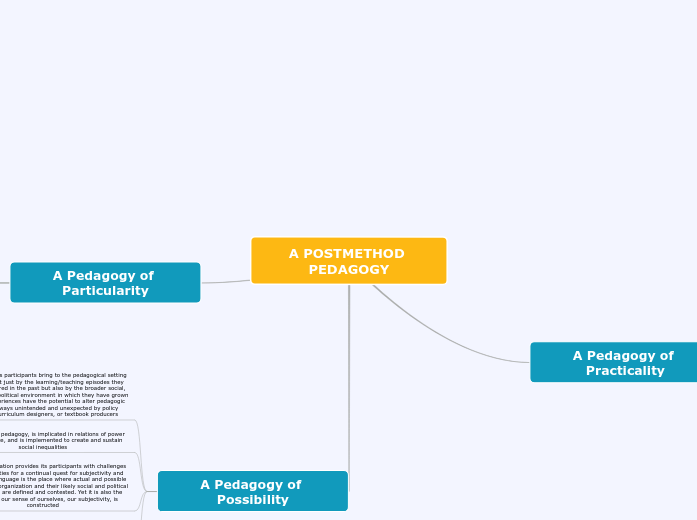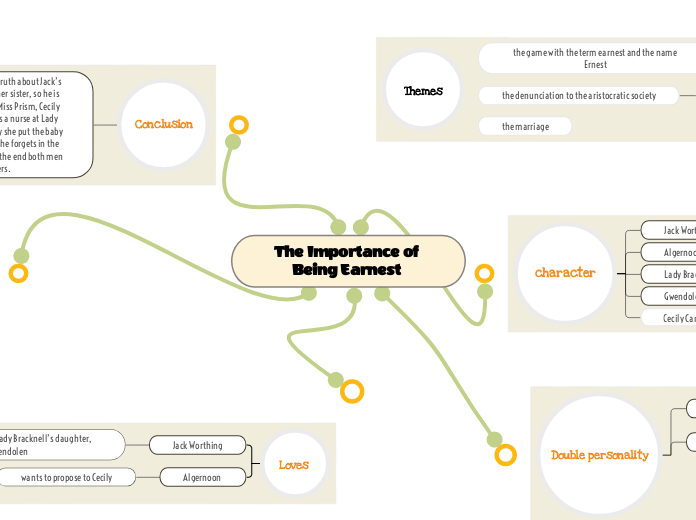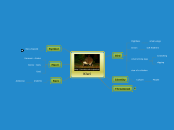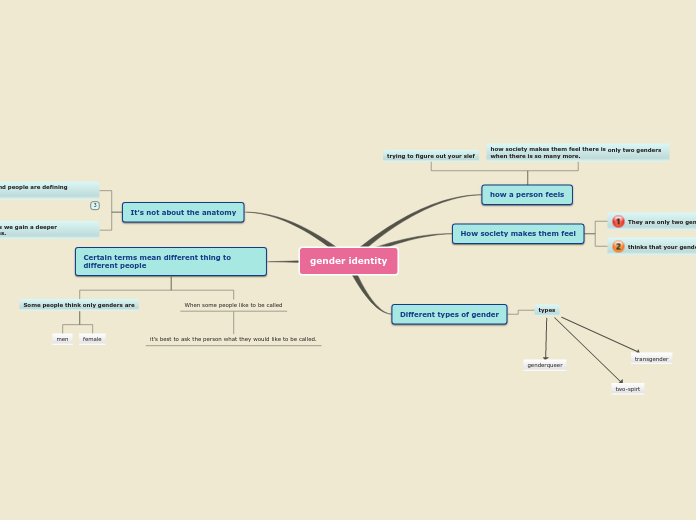realizată de Jessica Jhoana 21 zile în urmă
204
Mindomo mind map A POSTMETHOD PEDAGOGY
The concept of pedagogy is deeply intertwined with power dynamics and social hierarchies, influencing the way language education shapes individuals' identities and subjectivities. Language education acts as a conduit for examining and challenging social structures, offering both constraints and opportunities for self-discovery.









